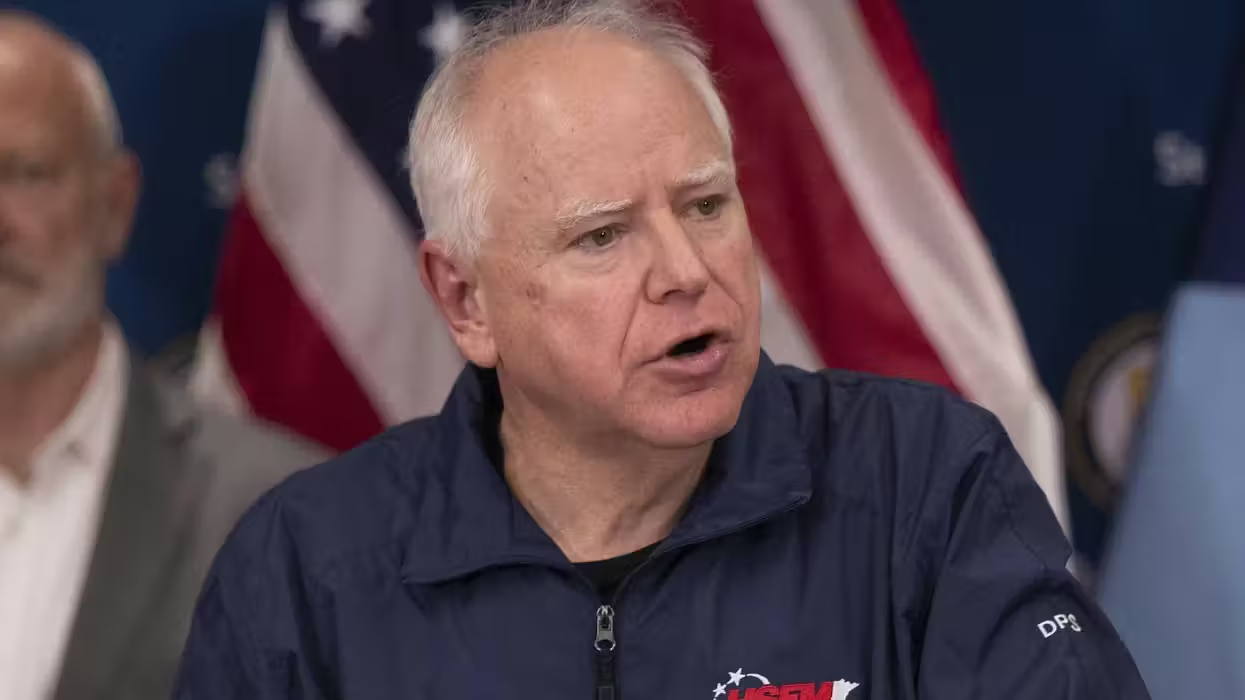
© 2026 Blaze Media LLC. All rights reserved.
Colluding with a foreign power to win a domestic election is obviously a morally reprehensible — and potentially illegal — action. It’s not at all the same as corresponding with a foreign nation to see if there’s potential to repair a relationship severely fractured by the Obama administration.
In its nonstop coverage of the Trump campaign’s relationship with the Russian government, many in the mainstream media have appropriated a moral parallel between the campaign’s Russian outreach efforts and unproven allegations of collusion.
Several indictments were executed by special prosecutor Robert Mueller on Monday morning, but none came close to making the claim that the Trump campaign was somehow working with the Kremlin to win the U.S. presidential election. What the indictments do speak to is that the Trump campaign made an effort to engage with the Russian government. This shouldn’t come as much of a surprise, as Trump frequently spoke publicly about seeking better terms with Russia while on the campaign trail. While he could certainly be accused of being too soft on Moscow, then-candidate Trump made his intentions open about the future of the U.S.-Russia relationship.
And unlike the past administration, there is no evidence that the Trump campaign was prepared to undermine American interests in its Russian outreach efforts.
Amid the political firestorm surrounding the Trump-Russia theories of collusion, the media has become increasingly hostile to anything Russia, so much so that Twitter felt enough pressure last week to ban two Russian state media enterprises from advertising on its platform.
The increasingly common labeling of Russia — and the Russian people as a whole — as enemy barbarians will do nothing to advance U.S. interests or global order. Unlike our relationship with, say, North Korea, the U.S. and Russia share a plethora of common interests. There are many reasons why the United States should be engaging Russia.
We both face the threat posed by the global jihad movement, which has killed scores of innocents inside Russia’s borders as well as ours. It is in both countries’ interests to continue to trade openly and freely, as a free market benefits both U.S. and Russian consumers. We can work together in international forums to pursue non-proliferation agreements and promote further cultural understanding and exchanges between two great powers that contributed so much to the advancement of civilization.
While the United States and Russia have several common interests, there are several geopolitical reasons for why we are still adversaries with Vladimir Putin’s Russia.
The Kremlin continues its kinetic advances on our allies in Eastern Europe and threatens the NATO alliance as a whole. Moscow props up the Assad regime in Syria and the mullahs in Tehran. Putin’s domestic iron-fisted approach has resulted in the deaths of journalists and dissidents, and the Kremlin has shown a pattern of violating the human rights of ethnic minorities throughout the nation.
Nonetheless, it’s important to recognize that Russia is not the Soviet Union. Moscow is an adversary, but not an enemy; nor are our nations in a state of war. Also, feel free to point out when the Russian government is corrupt and immoral, but that same label should not apply to the Russian people as a whole.
Now, ten months into Donald Trump’s presidency, there’s still nothing close to verifiable information that his campaign colluded with Russia to win the election. After revelations that the DNC and Hillary Clinton paid for the infamous “Trump-Russia” dossier, it’s looking more and more like the whole collusion narrative is a left-wing hoax. With much of the media recognizing this, they’ve turned to creating a parallel between collusion with Russia and outreach to Russia. Yet the prospect of colluding with Russians to win an election is not at all comparable to making a concerted effort at better relations with Moscow. An increasing number of Americans and Russians view each other as enemies. Shutting off communications entirely will only make the D.C.-Moscow relationship worse. Preserving an open line of communication is in the best interests of both nations.
Find out what the mainstream media won't tell you about President Trump and his administration.
Sign up to get CRTV's free White House Brief delivered right to your inbox once a day.
Want to leave a tip?
We answer to you. Help keep our content free of advertisers and big tech censorship by leaving a tip today.
Want to join the conversation?
Already a subscriber?
more stories
Sign up for the Blaze newsletter
By signing up, you agree to our Privacy Policy and Terms of Use, and agree to receive content that may sometimes include advertisements. You may opt out at any time.
Related Content
© 2026 Blaze Media LLC. All rights reserved.
Get the stories that matter most delivered directly to your inbox.
By signing up, you agree to our Privacy Policy and Terms of Use, and agree to receive content that may sometimes include advertisements. You may opt out at any time.






